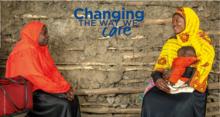Displaying 271 - 280 of 14574
The UN children's agency Unicef has told the BBC a convoy carrying aid was denied entry to northern Gaza, despite having all the necessary documents, adding that this is a common occurrence.
The World Health Organization (WHO) is seeking experts to serve as members of the Technical Advisory Group on Violence against Children Prevalence Estimation.
Violence against children caught in multiplying and escalating conflicts reached “extreme levels” in 2023 with an unprecedented number of killings and injuries, including in the occupied Palestinian territory, a United Nations report has found.
This workshop explores why it is important to support care leavers networks, and how these networks can be supported. The workshop was designed and facilitated by care leavers, with presentations from a regional network working across Africa, and networks in Uganda and Zimbabwe.
During this webinar, participants will focus on identifying effective strategies that support local organizations and employ a “whole family” or “two-generation” approach to early childhood development and protection for children on the move and their families.
The Better Together conference will provide a dedicated space and time to convene, share, and learn over two and half days in Nashville. Workshops will be focused on topics related to supporting children in families with special emphasis on the complexity of the current context in Haiti. In addition to workshops, there will be plenty of time dedicated to connecting and growing relationships.
In this study the authors explored the coping resources and assets of care leavers during and following the pandemic from the perspective of 44 care leavers in Israel aged 18–29.
A new Financial Times investigation identified and located four Ukrainian children, who were stolen by Russia and put up for adoption on the website “Усыновите.ру”. The children were taken out of orphanages in regions occupied by the Russian army in 2022. Their ages range from 8 to 15 years old.
This brief provides an overview of Kafaalah, an alternative family care option rooted in Islamic tradition, where a sponsor (Kafiil) cares for a child (Makfuul) without severing the child's ties to their birth family. It explains how Kafaalah differs from adoption by emphasizing that the child retains their birth family name and inheritance rights.
In this session, we will be exploring the legal aspects of permanence and early permanence with our Legal Consultants Alexandra Conroy Harris, and Augusta Itua. This six part series is tailored specifically to recently qualified social workers, students and those wanting to find out more about adoption, fostering and kinship care.


